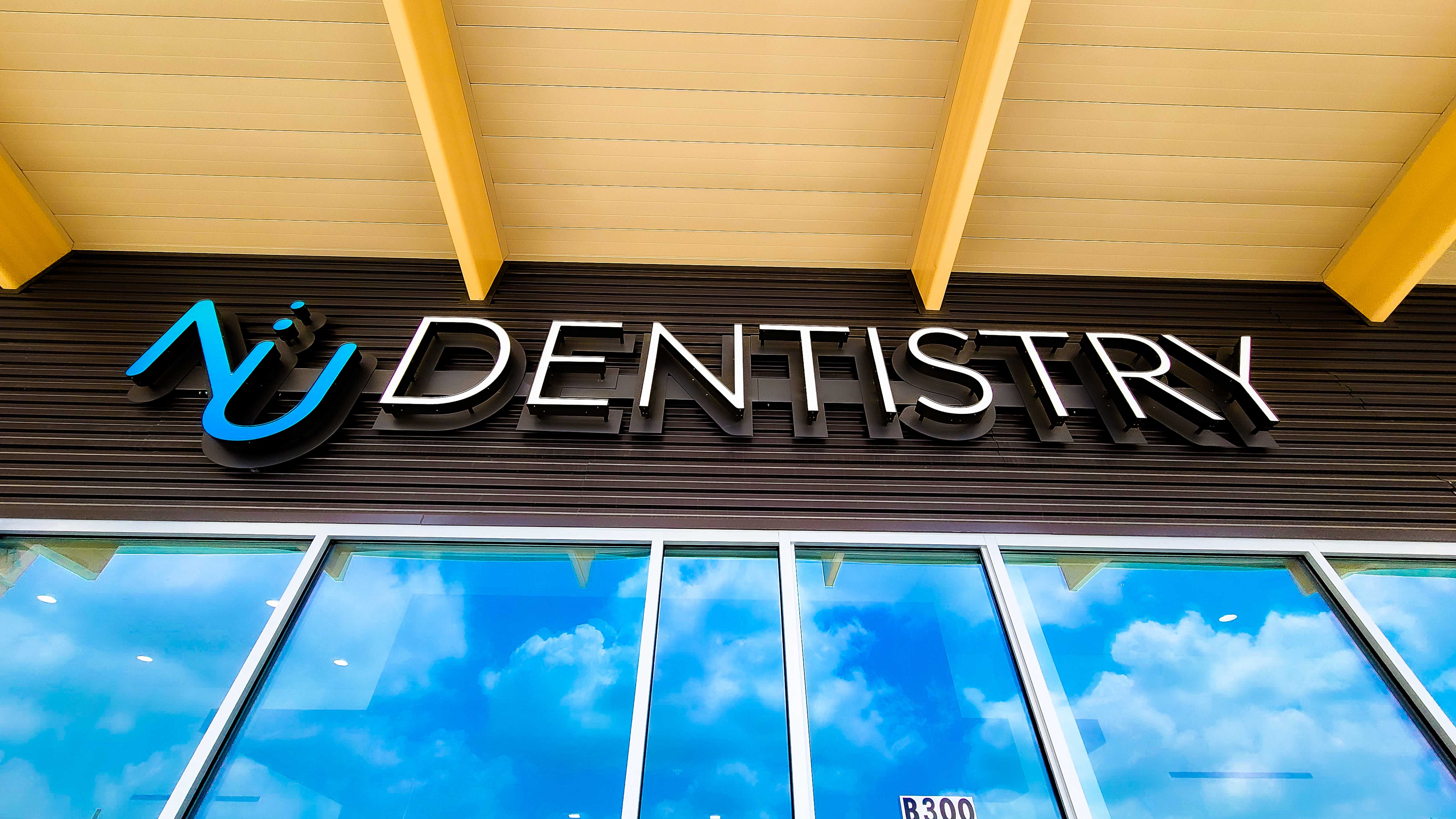Cosmetic Dentistry
Your Guide to Post-Whitening Care - Tips for a Lasting Smile
Achieving a whiter smile through teeth bleaching is a fantastic investment in your appearance and confidence. However, maintaining those pearly whites requires some post-treatment care. In this guide, we'll cover essential tips to keep your smile bright and beautiful.
What to Avoid After Teeth Bleaching?
After undergoing teeth whitening, your enamel can be more porous and prone to staining. To protect your investment, it's crucial to avoid the following:
Staining Foods and Drinks: Coffee, tea, red wine, berries, and soy sauce are common culprits. Their dark pigments can quickly undo the effects of whitening. Coffee and tea, for example, contain high levels of tannins which easily cause stains. Red wine, with its dark hue and acidic nature, can lead to discoloration. Berries like blueberries, blackberries, and raspberries, despite being healthy, can leave dark stains on your teeth. Soy sauce contains dark pigments that cling to teeth, and tomato-based sauces are both brightly colored and acidic, increasing the likelihood of stains.
Tobacco Products: Using tobacco products, whether smoked or chewed, significantly impacts the whiteness of your teeth. Nicotine and tar in tobacco are notorious for causing deep stains. Quitting tobacco not only benefits your oral health by preventing these stains but also improves overall health, reducing risks for conditions like gum disease and oral cancer.
Acidic and Sugary Foods: Acidic foods and drinks, such as citrus fruits, soda, and vinegar, can weaken your enamel. When enamel is compromised, it becomes easier for stains to set in. Similarly, sugary snacks and drinks contribute to tooth decay, further compromising the enamel and leading to discoloration. Limiting these items in your diet and rinsing your mouth with water after consuming them can protect your teeth.
Colored Mouthwashes: Many mouthwashes contain artificial colors and dyes that can stain your teeth over time. Opt for clear or white mouthwashes to prevent this issue. Additionally, alcohol-based mouthwashes can dry out your mouth, reducing saliva production and making it easier for stains to adhere to your teeth. Alcohol-free options are a safer choice post-whitening.
Foods with Artificial Colorants: Foods and drinks with artificial colorants, such as candies, popsicles, and certain sports drinks, can quickly stain your teeth. These items often contain dyes that can easily penetrate the porous surface of recently whitened teeth. Being mindful of the ingredients in the foods you consume and opting for natural, dye-free options whenever possible will help maintain your smile.
By avoiding these items and adopting a good oral hygiene routine, you can maintain the brightness of your newly whitened teeth and enjoy a radiant smile for a longer period.
Do Teeth Continue to Whiten After Treatment?
Immediately after a professional whitening session, you might notice your teeth appear their whitest. This effect is partly due to dehydration of the teeth during the process. As the teeth rehydrate over the next 24-48 hours, the final shade will settle, revealing the true results of the whitening treatment. While this slight change is normal, it doesn't mean your teeth will lose their brightness. In fact, with proper care, you can maintain and even enhance the whiteness achieved.
Using whitening toothpaste is an effective way to help sustain the bright shade of your teeth. These toothpastes contain mild abrasives and sometimes low concentrations of bleaching agents that can help remove surface stains and prevent new ones from forming. Brushing at least twice a day, along with regular flossing, will ensure that plaque and debris do not accumulate, which can lead to discoloration.
Avoiding stain-causing habits is crucial. Foods and beverages such as coffee, tea, red wine, and dark berries should be consumed in moderation. If you do indulge in these, consider using a straw to minimize contact with your teeth, and rinse your mouth with water afterward. Similarly, quitting smoking or chewing tobacco will not only keep your teeth white but also improve your overall oral health.
Regular touch-ups, whether at home or in-office, are also essential for maintaining a bright smile. Home touch-up kits, often provided by your dentist, can be used every few months to refresh your whitening results. These kits usually come with custom-fitted trays and a whitening gel to be applied for a specified period.
In-office treatments are another excellent option for maintaining your white smile. These treatments are typically more potent and can provide a more noticeable boost to your whiteness. Scheduling a touch-up session with your dentist every six months to a year can ensure your teeth stay at their brightest.
Additionally, consider professional cleanings as part of your routine dental care. Regular cleanings remove surface stains and tartar buildup that can dull your teeth over time. Your dentist can also provide personalized advice on maintaining your whitening results based on your specific needs and lifestyle.
How Many Days After Teeth Whitening Can I Eat Normally?
The first 48 hours post-whitening are critical. During this period, your teeth are more vulnerable to staining, so sticking to a "white diet" is advisable. This diet includes foods and beverages that are light in color and low in acid. Examples include dairy products like milk, yogurt, and cheese, which are gentle on your teeth and won't cause discoloration. White meats such as chicken and turkey are ideal protein sources that won't compromise the whiteness of your teeth. Light-colored vegetables like cauliflower, potatoes, and mushrooms are excellent choices because they are low in pigments and won't stain your teeth. For beverages, opt for clear options such as water, milk, and coconut water to stay hydrated without the risk of staining.
During these first two days, it's essential to avoid dark-colored and acidic foods and beverages. Coffee, tea, red wine, soda, and citrus fruits can all cause staining or weaken your enamel, making your teeth more susceptible to discoloration. Similarly, foods with strong pigments, like beets and berries, should be avoided. It's also a good idea to steer clear of spicy foods and sauces that could cause irritation to your sensitive teeth and gums.
After two days, you can gradually reintroduce your usual foods. However, it is still important to exercise caution. Start with mildly colored and non-acidic foods to ease your teeth back into your regular diet. Continue to avoid the most staining foods and drinks for as long as possible to prolong the whitening effects.
Maintaining good oral hygiene is essential to keep your smile bright. Brush your teeth at least twice a day with whitening toothpaste, and floss daily to remove any food particles that could lead to stains. Regular dental check-ups and cleanings will also help maintain the brightness of your teeth.
Additionally, consider using a straw when drinking beverages that could potentially stain your teeth. This simple step can help minimize contact between the liquid and your teeth, reducing the risk of staining. Rinsing your mouth with water after consuming foods or drinks that might stain can also be effective in keeping your smile bright.
By following these guidelines, you can enjoy a radiant smile for a longer period and make the most of your teeth whitening treatment.
Schedule Your Whitening Appointment Today!
Ready to achieve a dazzling smile? Our professional teeth whitening services are designed to give you the best results with expert care. Schedule an appointment with us today and take the first step towards a brighter, more confident you. Contact us now to book your session!

















































